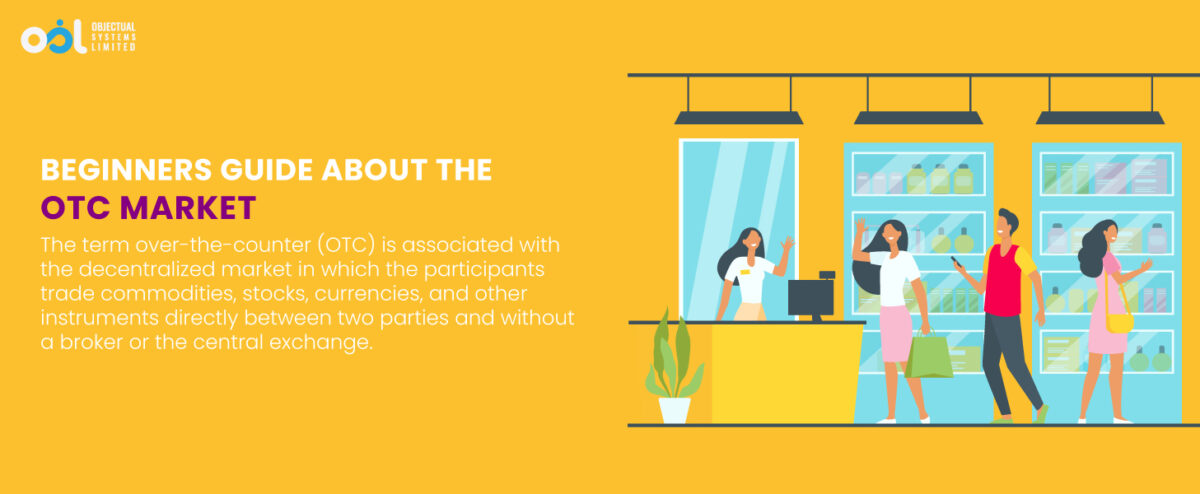The term over-the-counter (OTC) is associated with the decentralized market in which the participants trade commodities, stocks, currencies, and other instruments directly between two parties and without a broker or the central exchange. OTC markets do not have any physical location; rather the trade is conducted electronically which is very dissimilar from the auction market system.
In an OTC market, the market dealers quote prices regarding the trade of currency, financial products, and security. The buy and sell are executed between two participants whereas the price is disclosed to others at which the transaction is done. This is considered less transparent as compared to the stock exchanges with the lesser regulation, but the liquidity is at its peak in the OTC market. There is no need for a third person or broker in this market.
The market is used to trade structured products, currencies, trade bonds, and derivatives. The equities can be traded also like OTCOB, OTCOX, and OTC pink marketplace.
Limited Liquidity
The OTC market lacks sellers and buyers that results in the variation of the value of the security. The value of the stock depends on market makers trading the stock. Moreover, it is potentially dangerous if the buyer takes an important position in a stock that trades over the counter and should decide to sell it to some extent in the future. It can become difficult to sell in the future due to a lack of liquidity.
Risks Of Over-The-Counter Markets
Even when over-the-counter markets function well at the time of normal times, there is another risk associated that is called counterparty risk. In which there is the chance that one party in the transaction will default previously to the completion of the trade and will not pay the amount currently or in the future. The vicious cycle can develop during the time of financial stress due to the lack of transparency, as was the case of the global credit crisis in 2007-08.
There is a high chance that the mortgage-backed securities and other derivatives like CMOs and CDOs which specifically trade in the OTC market could not be priced reliably because of the dried-up liquidity totally in the absence of buyers. It results in an increasing number of dealers withdrawing from the market that worsens the liquidity problem. It also becomes the reason for the credit crunch globally.
Therefore, if you are planning to invest in an over-the-counter market then you need to have a clear understanding of the functions and operations of this market. As there is much difference between the OTC market and the stock exchange, it is essential to understand the professional tactics before digging into the pool. If you are looking for more financial content then you should give a visit to our platform of blogs. Our experienced team of content writers contributes effective information in diverse areas.

